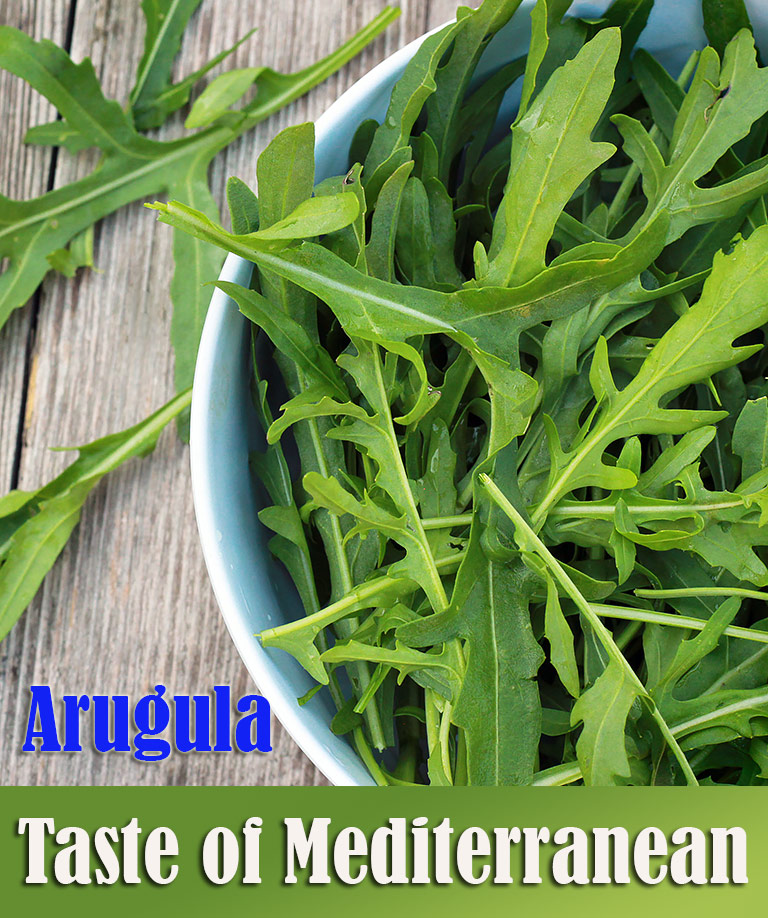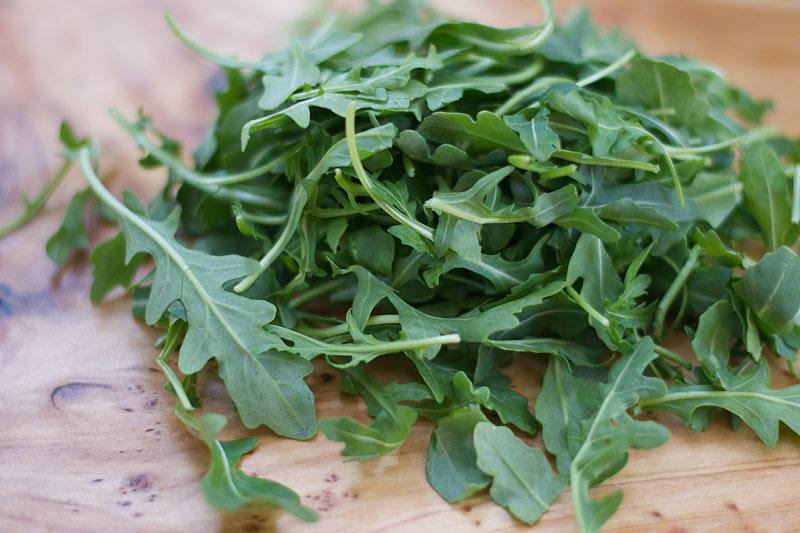
If you ever see a salad green referred to as “rocket,” it’s simply another name for arugula, or roquette in French. Yet another brassicaceae along with kale and cauliflower, its delightfully pungent leaves have been cultivated in the Mediterranean since time was recorded. As such, arugula is a perennial favorite in Italian cooking.
Rather nondescript in appearance, arugula is often added to mesclun mixes, where it adds a delicious zest. While the young, paler leaves have a mild flavor – good for fresh dishes like salad and pesto – the older, darker leaves have a bit of pepper to them, making them stand out in soups and pizza toppings.
Health Benefits of Arugula
This perennial derives a lot of nutritional value from its cruciferous family roots, such as antioxidant benefits from glucosinolates and detoxifying power from enzymes. It’s an excellent source of fiber, vitamins A, C (to boost the immune system), and K (for bone strength), folate, calcium, iron, magnesium, phosphorus, potassium and manganese.

It also provides high levels of protein, thiamin, riboflavin, vitamin B6, zinc, copper, and pantothenic acid (vitamin B5) for raising good cholesterol levels and lowering the bad. Its flavonoid content has multiple benefits: to prevent cholesterol from sticking to arteries, lower blood pressure, increase blood flow, lower inflammation, and improve blood vessel function.
Arugula Nutrition FactsServing Size: 100 grams of raw arugula | ||
|---|---|---|
Amt. Per Serving | ||
| Calories | 25 | |
| Fat | 1 g | |
| Sodium | 27 mg | |
| Carbohydrate | 4 g | |
| Dietary Fiber | 2 g | |
| Sugar | 2 g | |
| Protein | 3 g | |
| Vitamin A | 47% | |
| Vitamn C | 25% | |
| Calcium | 16% | |
| Iron | 8% | |
Studies Done on Arugula
A research team studying the natural health benefits of arugula discovered that it could be associated with fighting gastrointestinal ulcers, possibly through the many antioxidants it contains. Other studies have linked it to relief from gastric ulcer and psoriasis, as well as protection from skin, lung, and mouth cancers.

Arugula is one of the leafy green vegetables that contain cleansing properties to counteract the poisoning effects of heavy metals in the system, particularly in the liver.It also has the ability to eradicate pesticides and herbicides from the body.
Summary
Arugula is a leafy green vegetable that’s loaded with nutritional benefits for nearly every area of the body, from the brain to the liver, as well as the skin and blood vessels. A zesty addition to any salad, it’s also great in other recipes, such as pizza, pesto, and soup.





Leave a Reply